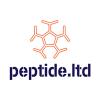What have you experimented with so far?
Too many to list! I'll mention some highlights, and I'll include substances that fall outside some of the narrower definitions of "nootropic" as a noun. I'll start with focus promotion. Both modafinil and the L-theanine/caffeine stack (in a ratio greater than 1:1) significantly improve my focus but at the expense of motivation and creativity. 200mg modafinil gives me tunnel vision/laser-like focus but is intolerably emotionally dulling. It's also a bit cognitively impairing for me at that dose. 150mg modafinil, 75mg armodafinil, and something like 3:2 L-theanine/caffeine all enhance my ability to focus without forcing it à la tunnel vision, but they're still emotionally dulling enough to be a dealbreaker. Ephedrine seems to have similar focus-promotion effects for me with less emotional dulling. 50-100mg modafinil also has less emotional dulling for me (still some) but much less focus promotion and also less wakefulness promotion. Doses under 100mg seem to have very little wakefulness promotion for me.
For wakefulness, I've had better luck with various slow-releasing caffeine (plus other xanthine) sources like guarana, yerba mate, and guayusa. For me the first two are basically extended release coffee without the jitters or crash, and guayusa adds just enough L-theanine for some focus promotion without much emotional dulling. I'm not sure what the ratio is, but I'd guess it's around 6:5 L-theanine to caffeine. In higher doses (around 150mg caffeine worth) there's enough of a mood lift to fully negate my dislike of the emotional dulling. Phenylpiracetam gives me similar (but much shorter lived) focus promotion without emotional dulling at doses of 100mg and maybe up to around 150mg, but I find 200mg phenylpiracetam very similar both in emotional dulling and focus promotion to 3:2 L-theanine to caffeine. I do like 100mg phenylpiracetam stacked with a little caffeine, but I can't take it regularly due to phenylpiracetam tolerance. That's one of the only combinations of wakefulness and focus promotion that don't negatively impact my motivation. Phenylpiracetam also seems to improve my working memory or at least context switching. The only other focus promoter I've found that doesn't lower my motivation is Adderall (and presumably other DRAs), and the few times I tried it I got *strong* focus promotion (borderline tunnel vision) with an *increase* in motivation. That combination is amazing, but also scary and potentially neurotoxic, so I haven't sought a prescription.
I've also experimented with low doses of stimulating strains of kratom (those with higher ratios of mitragynine to 7-hydroxy-mitragynine). Some strains were focus promoting at the expense of motivation, some were motivation promoting without affecting focus, all were very slightly impairing (less so than modafinil), and all were too finicky to dose right for me to give them an adequate amount of experimentation. Kratom is a great analgesic to have on hand for emergencies, though.
I've also tried semax and n-acetyl-semax-amidate. I haven't used semax in a while, but it was very interesting. It didn't have any sort of forced focus promotion, but it seemed a lot easier to concentrate on it than normal. I felt a bit more detached but not emotionally dull, and cognitive tasks that I'd normally find boring felt less draining. I'll have to play around with it again. I found n-acetyl-semax-amidate very similar but slightly less effective for concentration and significantly more effective for wakefulness promotion. I only took it two or three times, so I'm not super confident in that assessment. Unlike semax, I've heard "NASA" can't be taken daily without tolerance buildup, at least to the stimulating effects, so I'm more interested in regular semax given that I did respond well to it.
I've tried a number of racetams beyond phenylpiracetam (piracetam, ani-, oxi-, and prami-), all of which give me significantly enriched sensory experience but very little in the way of observable nootropic value. Piracetam increases my confidence and mood, which can have downstream benefits on cognitive performance if confidence and mood are below baseline on a given day.
I've been playing around with TULIP for a couple of months and am still trying to figure out optimal dose of PQQ, dose and presence/absence of ubiquinol, "dose" of LLLT, time of day for LLLT, frequency of LLLT, and dose and presence/absence of supplements on non-LLLT days. I get pretty significant subjective effects after "lasering" (I'm using the 96 LED), but if anything my cognitive performance and/or productivity seem to decrease until 8-24 hours afterwards. That recovery period seems lower when I take 20mg PQQ and 200mg ubiquinol than when I take 10mg PQQ or 0-100mg ubiquinol, but the one time I tried 300mg ubiquinol I had a decent amount of brainfog for most of the day. I plan to continue to play around with these variables and collect more informal data before making strong conclusions about TULIP's effects in me. I'm also really tempted to try an actual laser like the Vetro and see if I get clearer results. I have more to say, but this post is long enough as is! I'll have more to say in the upcoming weeks at any rate.
P.S. I forgot to address the "Big Six"! I eat well. I have good sleep hygiene but typically struggle with insomnia 2-3 nights a week. I walk a lot but don't get enough real exercise. I intend to add regular HIIT and/or BBS in about a month. I stand a decent amount and take walking breaks whenever I feel I've been sitting too long. I don't use a standing desk though. I don't formally fast, but I often replace breakfast or lunch with an egg, avocado, high-oleic nut butters, or whole fruit, especially berries. I am able to achieve meditative ego loss at will but can't usually hold it for more than a second or two without the aid of cannabis or serotonergic psychedelics. That first part results in a general outlook on life that promotes a fairly high baseline for mood and excitement and a fairly low baseline for anxiety, but it also means I don't access much of the nootropic benefits of conventional, per-session vipassana/mindfulness meditation. I might start reserving 5-10 minutes a day for meditation sessions.
Edited by MindExplorer, 15 April 2016 - 01:13 AM.



















































